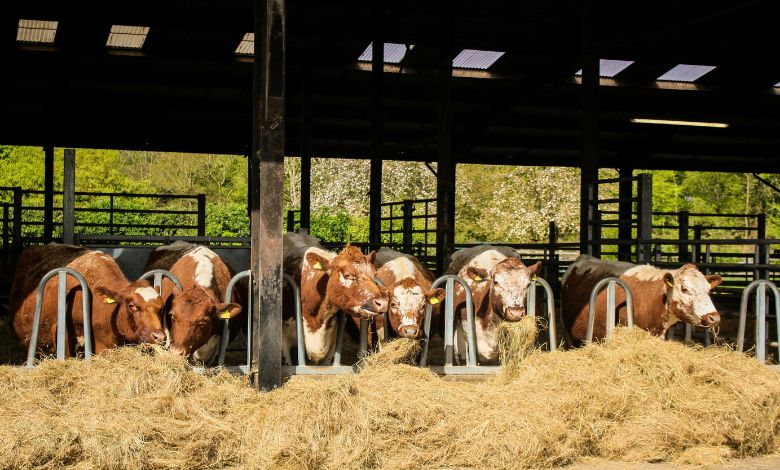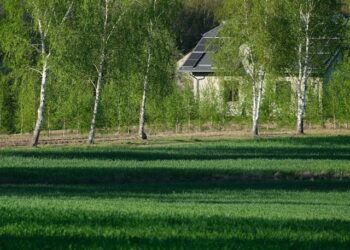Discover the Stuart Furber Animal Welfare Ban: What do you want to know about the case, key facts, legal impact, and lessons for animal care.
When I first heard about the case of Stuart Furb Animal Welfare Bansbud, I was surprised. Not only seriously what happened, but because it raised as many everyday questions that I had never thought of: What are the minimum standards for farm animals, which use them, and what happens when things are wrong. This article is a deep dive among the whole story, the implications and all of us , farmers, regulators, animal lovers or just citizens , from this matter.
What You'll Discover:
Who is Stuart Furber?
Stuart Furers is a Whickel farmer near Whaturch in Shropshire, England. His special farm team is called Rai Hills. This is where the events inspired it to take legal steps.
I write it is not difficult to do justice, but to understand. Because often conditions become complicated. And knowing about reference means something.
What happened: Prohibition and crime
Here we still know:
A court (Telford Magistrate Court) forbade Stuart Furers to place animals for five years, immediately effective.
He was found guilty of five offenses related to cattle welfare, as well as a crime to fail to test cattle for bovine tuberculosis.
Part of the problem was their farm position: It was considered “unsuitable” for animals. Problems included adult animals, debris and scrap that lies around the metal, and poor drainage without mixed male and female calves, enough dried laying areas.
In addition to the ban, he received a 250 hour community service and was ordered to pay around 1,800 pounds in the cost of the Shropshire Council.
Why do these crimes mean something important
To understand gravity, break some main points:
Animal Welfare Standard
The fields are expected to meet basic welfare criteria: safe, dry shelter; Access to clean water; enough space; Separation when needed; Protection against dangers. When collapsing, animals can suffer from ways that many of us will find unacceptable. In this case, debris around, the wrong mix of animals and poor shelters were large red flags.
Boiling TB test is not optional
The bovine tuberculosis (TB) is severe , for animals, in some cases for humans and for the extensive agricultural industry. Rules require testing so that infected cattle can be identified and controlled. Not to do so can spread the disease, reduce public trust, reduce financial risk and damage markets. Despite the advice of the authorities, the Furberer tested the tests repeatedly.
Regulatory surplus and enforcement
The Animal Health Team of Shropshire Council inspected the field several times. They got the conditions “under well ,accepted standards.” When voluntary compliance fails, law enforcement should be rolled in. This case shows what happens when the audit detects serious errors.
Personal reflection: Why is it close to the house
Let me stop and tell you a quick story. I grew up in a semi,country area. There was a small plot in my family, just a few livestock: a pair of cattle, some chickens. We were proud to take care of ourselves , not because of the law, but because these animals were part of daily life. You fed them, you protected them, you cleaned them after them. You saw that when something was closed: a cow does not eat, a chicken limps. Some small farmers do not have much infrastructure or deep pockets. But many basic things , dry beds, clean water, safe cabinets , are remarkable with care and attention.
When I read the details of the FURB case, I think, “How did things reach the point where the standard is so low?” There is always a mix of resources, knowledge, inspection and sometimes neglect. And sometimes people just see until they are bound by the law. It does not apologize for poor treatment, but it helps to explain how these types of conditions can occur.
How does law work: Power and punishment
It helps to know how animal welfare regulation and enforcement work in the UK (this case is in England / Shropshire):
Local authorities such as Shropshire Council have Animal Health Team and Environmental Health Department. They inspect, monitor and follow complaints or regular checks.
If the standard is below minimum, the Council may issue reform notification or other regulatory orders. If they are ignored, prosecution becomes possible.
Courts can apply different penalties: punishment, community service, restriction from placing animals for a certain period, and restoration or cost. The severity usually depends on the level of neglect, risk, number of animals, previous warnings and degrees of loss.
Disease control laws, such as Boving TB, are strict: The test is mandatory. Non,transport can lead to further legal consequences beyond welfare laws.
The aftermath: What does it mean for furber and others
Keeping yourself in a Furbar’s shoes: losing the right to keep animals for five years means that the entire agricultural business models may have to be changed or stopped. Livestock farms depend on animals; Sales, breeding and daily work are all dependent on their care. The ban is threatened with income, reputation, perhaps even the ability to go.
For other farmers, this case is a warning: Welfare standards are not optional, and the supervisory bodies are ready to prosecute. It can also motivate some farmers to double their own compliance: shelter, drainage, safe homes, disease testing. Many opportunities have already been corrected. Some may cut corners due to costs or lack of knowledge. Where education or local support plays a role.
In addition, for the authorities, strict inspection from the case, more resources for welfare enforcement teams, possibly more public awareness campaigns on standards and expectations.
General questions and concerns
Here are some things that people often ask to hear about such a case:
“Is the five annual ban typical?”
While each case varies, such a long restriction is serious, but over time many crimes and frequent errors are not unheard of. When the dangers of welfare are pronounced and the authorities have tried to intervene, a court may issue long term restrictions to protect animals.
“What would FURB have done differently?”
Maintain clean, safe, dry shelters.
Regular maintenance to eliminate hazards such as scrap metal.
Follow veterinary and regulatory guidance , especially for disease testing.
When needed, keep different enclosures (male/woman, young/old).
If the deficiencies are present, you first link to the council or the regulatory bodies.
“Do these penalties help animals immediately?”
Yes. The ban means that there is no other risk of neglect of care during the care of the person under the ban. If the animals are removed, or if the condition is improved immediately below the condition, the damage can be prevented. But rehabilitation of damaged animals can take time.
“What about the economic and emotional burden for farmers?”
This is the truth. Farming is often a business with low margins. Investing in better infrastructure, shelter or better disease control is used by spending money. Some, especially for small operators, can be difficult for these costs. But part of the regulations is to balance moral responsibility against animal welfare, public health and business realities.
Learned and practical advice
If you are a farmer, Zamindar or just worried about animal welfare, there are some takeaways here (I have heard many agricultural stories):
Don’t wait for regulators to present problems
See them yourself. Walk your farm while you are going for the first time. Where are animals located? Is the water clean and always available? Is something sharp or uncertain? If you are unsure, ask the veterinarian or the local animal health office.
All the document
Keep records of disease tests (such as bovine TB), inspection, cleanup. If recommended, answer quickly. Sometimes just showing that you tried to make changes (although incomplete) could distinguish the legal settings.
Invest in shelter and drainage
To ensure that the animals can get out of the wet or dirty ground, it is very large. It reduces the risk of the disease (such as hoof rot, respiratory infection) improves rest, and expects basic welfare. Can help cheap shelters, but should be safe, dry, well ventilated.
Learn the rules
Rules vary depending on the region, species, disease risk. Make sure you are aware of the requirements of your local advice, national disease control laws and all new law or guidance.
Fellowship and support are linked to the network
Often, local agricultural groups, animal welfare donations, and weights of weights are there. They can help with training, cost sharing ideas or even supplements to improve the infrastructure. Sometimes you don’t know what helps there, as long as you ask.
Extensive implications: For society, politics and trust
It’s not just about a farm. The hefty case touches the wide topics:
Public trust in agriculture: Reports of welfare violations can destroy confidence in how food is produced, how animals are treated. Consumers can go against strict labeling, supervision or plant based alternatives.
Political Reform: Such events can feed calls for strong laws, severe punishment, more frequent/rigid inspections. Especially where welfare overlaps each other with public health (e.g. disease risk).
Ethical consumerism: Several care about whether their food comes from human systems. Farms and manufacturers who maintain high welfare standards can have market benefits. Others may suffer iconic injuries.
Environmental and health dimensions: Poor welfare is often related to the risk of illness, disabilities (sick animals = extra feed, veterinary costs), waste and sometimes contamination or spread of diseases. Therefore, Kalyan is not a “good extra”. It is part of a flexible agriculture and food system.
What comes next: Possible landscape
Think further what may be with regard to this ban?
The Court of Appeal or further legal steps: Ferber can make an appeal or other related cases may surface.
The farm’s reorganization or closure: Without access to animals, parts of the farm business may be necessary to change or downsizing.
Improvement and re ,entry: After the ban, whose furber or successor is trying to enter animal farming, there will probably be a strict investigation. Maybe requirements to upgrade features, get veterinary approval, show matches over time.
Politics/regulatory tightening: Local advice can increase the inspection or mandate periodic reporting. National bodies may consider increasing punishment or standard needs to avoid such errors.
Awareness and cultural changes: Several farmers and farm workers can see it as a story of a precaution. This can lead to more interest in welfare to use best practice, not only as a commitment, but as part of the pride in agriculture.
Why the case resonated with me
I help with animals. I remember once helping your grandfather create a temporary shelter for the lamb, using old wooden planks, nails safely, to keep the rain out of the plastic. It was perfect. But we tried every time, because we “knew” the comfort of animals. For at night, complaining to a lamb by a trembling or sloppy pen, just be with you.
When I read about Rai Hills Farm and what was discovered, I was not ashamed, not because of shame, but because I felt that a place’s agricultural parts were destroyed: either because of neglect, perhaps lack of capacity or support, or probably because the small warning signs were ignored until they grew up. The results are real: For animals, for farmers, for fellowship.
Key Takings
- If you get away from it with just a few things, then I think I think:
- The term “Stuart Furber Animal Welfare Ban” is not just a title , it is a case study in regulation, welfare standards and legal accountability.
- Animal welfare laws are not optional; Failing to meet them can not only lead to funding and reputation, but can also have the ability to work.
- Many problems originate from relatively infrastructure: shelter, pure environment, safe separation, disease control. They are resolved.
- There is value in active care: Keeping good standards often prevents legal and moral distress later.
- The broad attitude includes self ,confidence, public health, morality and agricultural stability.
Additional Resources
- Shropshire Council statement on Stuart Furber ban:Official confirmation of the court ruling, enforcement details, and immediate effect of the animal welfare prohibition.








